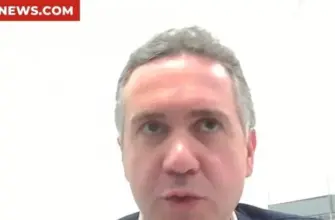The recent surge in autism diagnoses has sparked a contentious debate, with perspectives sharply diverging between experts and government officials.
While many professionals attribute the increased prevalence to heightened awareness and more sophisticated diagnostic tools, Robert F. Kennedy Jr., Secretary of Health and Human Services, asserts that environmental factors are the primary driver behind the rise in cases. Kennedy characterized those who dismiss this notion as engaging in “epidemic denial.”
Kennedy made these remarks Wednesday while addressing findings from a new Centers for Disease Control and Prevention (CDC) survey released Tuesday at HHS headquarters in Washington, D.C.
“This originates from an environmental toxin,” Kennedy stated firmly. “Someone profited by introducing that toxin into our air, water, medicines, and food. It’s advantageous for them to normalize this phenomenon, to claim it’s always been here. That’s detrimental to our nation.”
The CDC survey itself confirmed a concerning trend: in 2022, an estimated one in thirty-one eight-year-olds received an autism diagnosis, compared to one in thirty-six in the year 2000. Further analysis revealed significant gender disparities within this population:
- One in twenty boys were diagnosed with autism.
- The rate for girls is considerably lower, at one in seventy.
While acknowledging that genetic predispositions may play a role, Kennedy emphasized that the significant increase in autism rates began around 1989, suggesting the introduction of a novel environmental contaminant.
“Why haven’t we observed this in older generations?” he questioned. “Have you ever encountered someone our age – I am seventy-one years old – exhibiting severe autism symptoms, such as head-banging, lack of verbal communication, or difficulty with toilet training?”
As a result, Kennedy announced that HHS studies would thoroughly investigate potential contributors to autism, including:
- Exposure to mold
- Pesticides
- Air and water quality
- Various medications
- Parental age and obesity rates
“We will examine all possible causes,” Kennedy declared.
The CDC declined immediate comment on the apparent contradiction between Kennedy’s assertions and their survey findings.
Kennedy indicated in a White House Cabinet meeting that a substantial research initiative aimed at uncovering the root cause of autism would launch by September.
However, Kennedy’s statements have faced criticism. The Autistic Self Advocacy Network, an organization dedicated to advocating for individuals with autism, challenged his perspective, alleging that he disregarded scientific evidence pointing towards genetic factors as a primary contributor.
“There’s no proof that autism is actually becoming more prevalent; rather, we are improving our ability to identify it and diagnostic criteria have broadened appropriately,” the network stated. “Even if rates were increasing, autistic and disabled people deserve inclusion in society. To portray our existence as a problem requiring elimination is a form of eugenics.”






